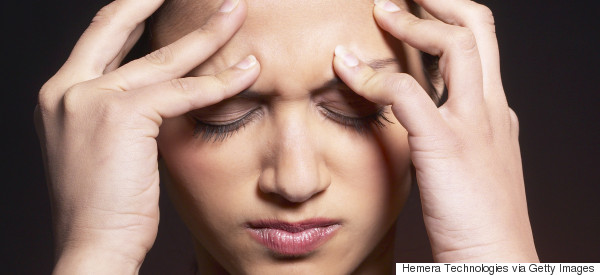A 47-year-old executive jumped to his death from his 19th floor apartment in Gurgaon on 16 May. Among other things, his suicide note read, "I am unable to cope. I am sorry. I am depressed. I see no way out except for suicide."
'Unable to cope', 'depressed', 'no way out', - every word in his note is most likely to ring familiar to hundreds of people across ages, ethnicities and economic groups across the world. Often, we dismiss symptoms of clinical depression as stressful phases that will pass by. At other times we ignore clear signs that a friend, colleague, relative is depressed because we tend to ignore the same as 'mood swings' and let the person battle his or her demons on their own.
In fact, depression is yet to be accepted as a form of ailment that deserves medical attention as much as any other physical illness does in Indian homes.
The lack of conversation around depression, misinformation and stigma makes it impossible for individuals to understand if they need to pay a visit to a professional to seek help.
So we spoke to various mental health professional and drew up a list of symptoms that shouldn't be ignored if they persist for too long.
According to Delhi-based psychologist Dr Harsheen Arora, if someone feels disturbed and loses interest and pleasure in all activities, it is a sign that he or she should visit a doctor.
“The individual would experience at least four symptoms such as loss in appetite, sleep, decreased energy, feelings of worthlessness or guilt, difficulty in making decisions or concentrating, and even recurrent thoughts of death or suicidal ideation,” she says.
1. Physical (somatic) pain.
“It is common for a depressed person to complain of constant unidentified pain,” says Dr Arora. This is especially common in children who cannot identify what is wrong with them. The warning sign will come “in the form of inexplicable physical or somatic symptoms such as body aches, gastrointestinal symptoms and so on", says Dr Samir Parikh, chief of mental health and behavioural sciences, Fortis Healthcare.
Image may be NSFW.
Clik here to view.
2. Increased irritability.
“Anger outbursts, blaming others, or frustration when things do not go a person’s way is another alarm bell,” says Dr Arora. This is especially apparent when you feel you are losing your connection to the rest of the world because of these outbursts.
3. A visible decline in energy.
Feeling tired continuously and fatigue are also common signs of depression, if they persist for very long, says Dr Era Dutta, consultant psychiatrist, SL Raheja Fortis Hospital, Mahim.
4. Loss of interest in activities one liked previously.
If a person loses interest in activities he/she usually enjoyed tremendously, it should be treated as a warning sign. If you notice a visible difference in enthusiasm levels of a person you know well and see the same persist for a long time, you should try having a conversation about depression with the person. Or direct him or her to a mental health professional.
5. Self blame.
Blaming oneself for being ill and failing to meet responsibilities at work or home is also a sign. “An exaggerated sense of responsibility for negative events (this may reach delusional proportions) should be worrying,” says Dr Arora. She adds that patients may also end up over-analysing trivial events and even subject themselves to intense, damaging self scrutiny.
Image may be NSFW.
Clik here to view.
6. Fluctuating appetite.
“Depressed people have to force themselves to eat and suffer from a significant loss of appetite,” says Dr Dutta. “Alternatively, some others may suffer from intense cravings and could end up binge eating," says Dr Arora.
7. Lethargy.
When the smallest tasks takes considerable effort to be completed, one should realise that something is amiss. Frequently missed deadlines at work, inability to do work, should ring an alarm bell, says Dr Parikh.
8. Dangerous thoughts.
If someone ever speaks of ending his/her life, the person he or she chooses to confide in should immediately get the friend medical help. Dr Arora says that depressed people vigorously deny being sad but frequently contemplate ending their lives.
Image may be NSFW.
Clik here to view.![mental health]()
If you struggle with suicidal thoughts call any of these helplines: Aasra 91-22-27546669, Sneha 04424640050, Jeevan 0091 6576453841, Pratheeksha 0484 2448830.
Image may be NSFW.
Clik here to view.![]() Like Us On Facebook |
Like Us On Facebook |
Image may be NSFW.
Clik here to view.![]() Follow Us On Twitter |
Follow Us On Twitter |
Image may be NSFW.
Clik here to view.![]() Contact HuffPost India
Contact HuffPost India
Also see on HuffPost:
'Unable to cope', 'depressed', 'no way out', - every word in his note is most likely to ring familiar to hundreds of people across ages, ethnicities and economic groups across the world. Often, we dismiss symptoms of clinical depression as stressful phases that will pass by. At other times we ignore clear signs that a friend, colleague, relative is depressed because we tend to ignore the same as 'mood swings' and let the person battle his or her demons on their own.
In fact, depression is yet to be accepted as a form of ailment that deserves medical attention as much as any other physical illness does in Indian homes.
The lack of conversation around depression, misinformation and stigma makes it impossible for individuals to understand if they need to pay a visit to a professional to seek help.
So we spoke to various mental health professional and drew up a list of symptoms that shouldn't be ignored if they persist for too long.
According to Delhi-based psychologist Dr Harsheen Arora, if someone feels disturbed and loses interest and pleasure in all activities, it is a sign that he or she should visit a doctor.
“The individual would experience at least four symptoms such as loss in appetite, sleep, decreased energy, feelings of worthlessness or guilt, difficulty in making decisions or concentrating, and even recurrent thoughts of death or suicidal ideation,” she says.
1. Physical (somatic) pain.
“It is common for a depressed person to complain of constant unidentified pain,” says Dr Arora. This is especially common in children who cannot identify what is wrong with them. The warning sign will come “in the form of inexplicable physical or somatic symptoms such as body aches, gastrointestinal symptoms and so on", says Dr Samir Parikh, chief of mental health and behavioural sciences, Fortis Healthcare.
Image may be NSFW.
Clik here to view.

2. Increased irritability.
“Anger outbursts, blaming others, or frustration when things do not go a person’s way is another alarm bell,” says Dr Arora. This is especially apparent when you feel you are losing your connection to the rest of the world because of these outbursts.
3. A visible decline in energy.
Feeling tired continuously and fatigue are also common signs of depression, if they persist for very long, says Dr Era Dutta, consultant psychiatrist, SL Raheja Fortis Hospital, Mahim.
4. Loss of interest in activities one liked previously.
If a person loses interest in activities he/she usually enjoyed tremendously, it should be treated as a warning sign. If you notice a visible difference in enthusiasm levels of a person you know well and see the same persist for a long time, you should try having a conversation about depression with the person. Or direct him or her to a mental health professional.
5. Self blame.
Blaming oneself for being ill and failing to meet responsibilities at work or home is also a sign. “An exaggerated sense of responsibility for negative events (this may reach delusional proportions) should be worrying,” says Dr Arora. She adds that patients may also end up over-analysing trivial events and even subject themselves to intense, damaging self scrutiny.
Image may be NSFW.
Clik here to view.

6. Fluctuating appetite.
“Depressed people have to force themselves to eat and suffer from a significant loss of appetite,” says Dr Dutta. “Alternatively, some others may suffer from intense cravings and could end up binge eating," says Dr Arora.
7. Lethargy.
When the smallest tasks takes considerable effort to be completed, one should realise that something is amiss. Frequently missed deadlines at work, inability to do work, should ring an alarm bell, says Dr Parikh.
8. Dangerous thoughts.
If someone ever speaks of ending his/her life, the person he or she chooses to confide in should immediately get the friend medical help. Dr Arora says that depressed people vigorously deny being sad but frequently contemplate ending their lives.
Image may be NSFW.
Clik here to view.

If you struggle with suicidal thoughts call any of these helplines: Aasra 91-22-27546669, Sneha 04424640050, Jeevan 0091 6576453841, Pratheeksha 0484 2448830.
Image may be NSFW.
Clik here to view.
 Like Us On Facebook |
Like Us On Facebook | Image may be NSFW.
Clik here to view.
 Follow Us On Twitter |
Follow Us On Twitter | Image may be NSFW.
Clik here to view.
Also see on HuffPost: